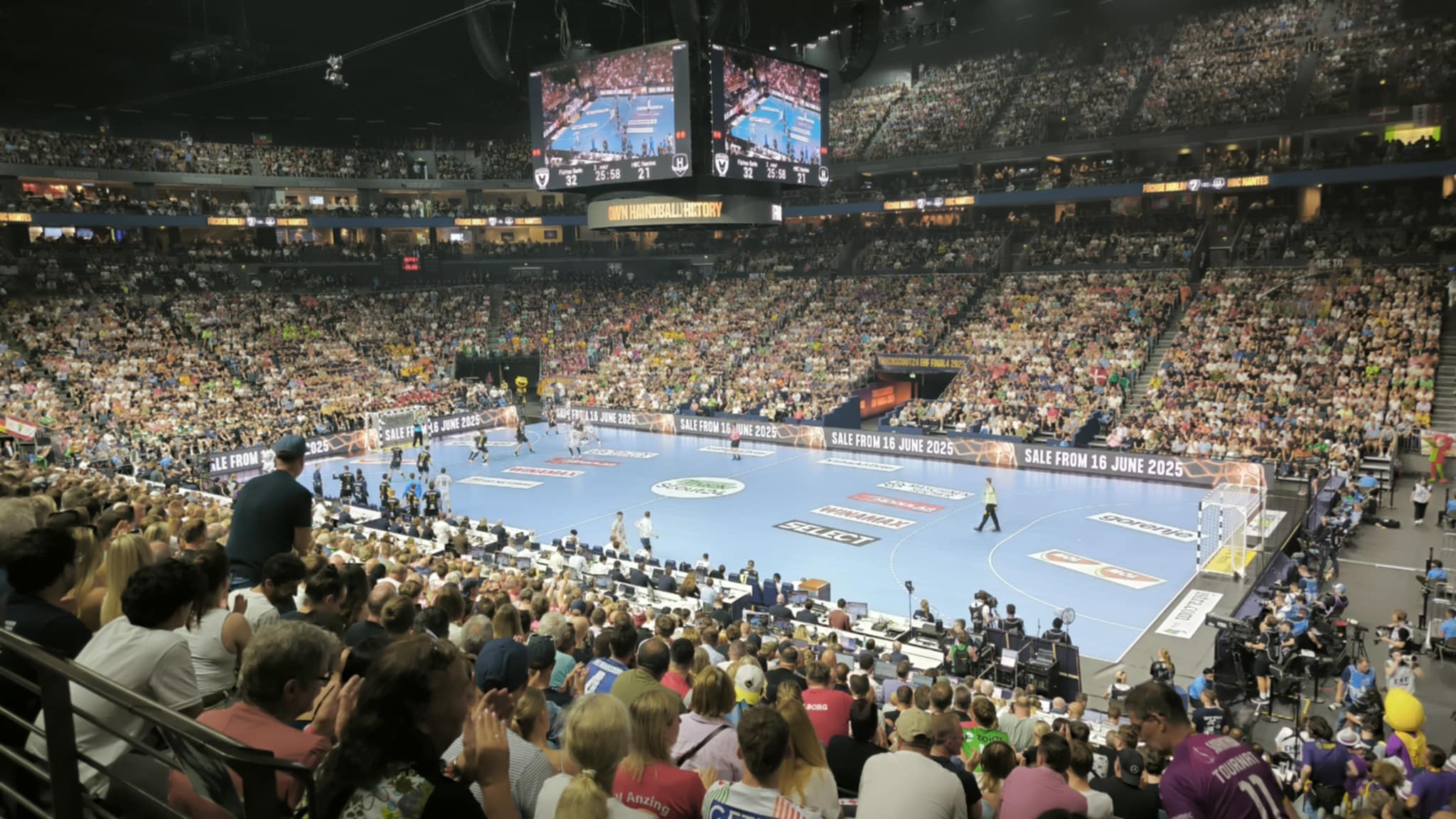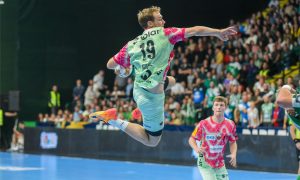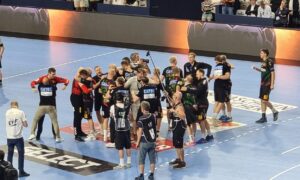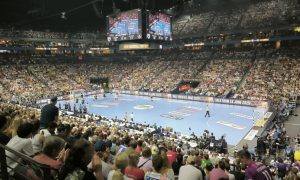“Where Handball Lives: A Love Letter to Lanxess Arena”

People often ask why I don’t write those columns of mine more frequently, and my answer is always the same: “In order to write, something has to stir me.” It has to make sense, at least a little. That “something” always happens in Cologne, this magical place where outside the arena you can’t even count all the jerseys of clubs whose fans came to support—everyone. It’s a fascination that never fades, because here, whistles are earned rarely, and everyone, when they lick the wounds of defeat, deep down knows they’ve achieved something great in their career simply by spending these three days in the Lanxess Arena. A walk around the arena is a healing therapy for all handball problems and frustrations.
It’s been a MUST for a long time. For a long time now, when my friends ask me how long I’ll keep going and when I’ll stop, I borrow that famous line from one famous Serbian film “Three Tickets to Hollywood”, when policeman in time of Comunism asks his subordinate:
“How dare he not show up?”
“He died…”
For a good movie, the plot is everything. And this referee rigidity, the inability to recognize that 20,000 people came to Cologne to see that Mathias Gidsel and to witness the final chapter in the story of a guy with a face drawn like a Japanese cartoon character, the one who was supposed to prove on Sunday that he’s a super-being and that this decade is named after him—and instead you throw him out in the ninth minute for slipping (and later we saw how many players were slipping)—and give him the first red card of his life… there has to be something more, like intent to injure. Luckily, the spectacle wasn’t ruined. Referees are flesh and blood too—they can ruin an event, but rarely deserve the laurels.
On the other hand, that lack of empathy helped us break the stereotype that Gidsel is Berlin, and Berlin is Gidsel. While he sat frozen on the bench, not celebrating his team’s goals, hands on his face, tears in the locker room—the job was done by a perfect machine. Dejan Milosavljev—present. Truly present. A champion knows when he has to be his best. Only he, Marsa, and Štrlek know what it’s like to go from Cologne straight to paradise. Lasse Andersson draped the Danish flag over his shoulders and decided to finish the job instead of the greatest. Times are changing. The mistake of “Let’s win the Bundesliga and then head to Mallorca,” like HSV did in 2011, doesn’t fit the new generation. I don’t know how many TV cameras zoomed in on Gidsel’s “I died yesterday, they just haven’t told you yet” face behind the goal, but that will one day make for a powerful documentary.
And no less powerful would be the one starring Nikola Portner. A man who still hasn’t lost in the Lanxess Arena. What he went through last year would’ve sent many to a monastery—or worse. Not him. Now he’s at 5 out of 5 on the biggest stage in the world and heading toward his third European title, just like his Zlatko. After a “so and so” season where Hernandez proved why he’s a top-tier goalkeeper and why Barcelona awaits him, Nikola stepped out of the shadows, “drowned” Barca’s wings, and gave wind to the sails of those Scandi “judokas” of his on offense who, as the esteemed K.G. would say, grind and grind and grind until they break through everything. He stopped me five times. Fine. I’ll attack five more.
Water always finds its way. I’m sure that’s written somewhere in Bennet Wiegert’s notebook—and that will be the opening line of his autobiography one day:
“Water always finds its way.”
And in Iceland, it splashed—and will keep splashing. In Scandinavia, it will never dry up.
Enjoy the final. Enjoy everything this sport brings—where coaches end up on their knees, screaming and punching the Gerflor floor.
Let it move you.
Long live handball.










